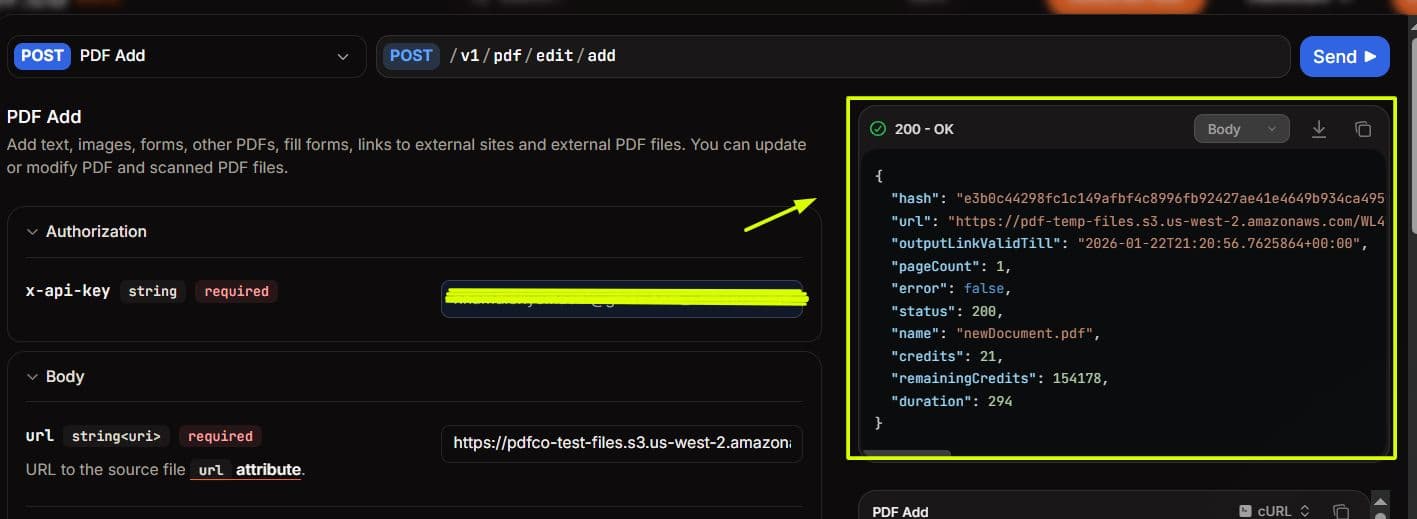API Tester for PDF.co Web API
The PDF.co API Tester is a simple and powerful tool that helps you test PDF.co Web API endpoints quickly. With this tool, you can select an endpoint, configure parameters, run requests instantly, and preview the response—all in one place.
What is the PDF.co API Tester?
The API Tester allows you to call any PDF.co Web API endpoint and view the result without writing code first. It’s especially useful for quickly validating requests, experimenting with parameters, and confirming expected output before implementation.
API Tester Benefits
Easy to Use
The API Tester is designed for quick testing and easy navigation. You can select API endpoints from the left-side list and load ready-to-use examples instantly.
Built-in Testing Tool
API Tester is one of PDF.co’s built-in tools that makes it easy to test endpoints and verify configurations without needing Postman or writing scripts.
Quick Output Preview
Depending on the endpoint, the API Tester shows the output directly in the response panel. This allows you to quickly validate whether the request worked as expected.

Ready-to-Use Samples
Each endpoint includes sample request parameters so you can test immediately. You can easily replace sample values such as:
- input file URL
- inline output
- expiration settings, etc.



URL-Based Input (Publicly Accessible Files)
The API Tester works best with publicly accessible file URLs as the input source. This means:
- your file must be reachable via a public link (e.g., file hosted on cloud storage)
- the API can download and process the file directly
This makes testing simpler and faster without requiring manual uploads inside the tester.
Access to Advanced Features
The API Tester supports advanced settings depending on the endpoint. For example, you can modify parameters such as:
profiles(for OCR settings, filters, and processing behavior)async- output types and configuration options
This makes it easier to test different scenarios and fine-tune your results.
Summary
The PDF.co API Tester is an efficient way to explore and test PDF.co Web API endpoints. It helps you validate your requests quickly, review outputs instantly, and experiment with advanced settings before implementing the API in your workflow.
TRY THE REQUEST TESTERRelated Tutorials


